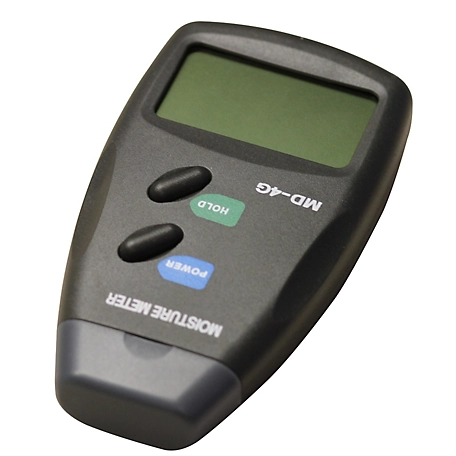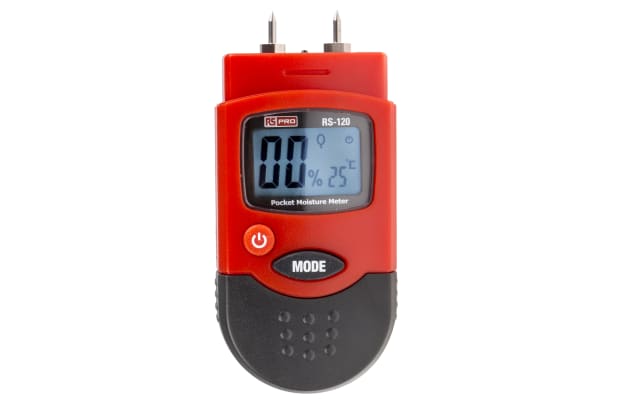Why Every House Owner Demands a Moisture Meter: Trick Advantages and Features
Why Every House Owner Demands a Moisture Meter: Trick Advantages and Features
Blog Article
The Ultimate Guide to Moisture Meters: A Comprehensive Summary and How They Can Save You Money
Wetness meters serve as crucial devices in detecting and keeping track of moisture material in products, helping in preventing costly problems and ensuring the high quality of items. Comprehending the nuances of various kinds of wetness meters, their applications, and the potential cost-saving advantages they provide can be a game-changer for companies and experts alike.
Sorts Of Moisture Meters
One usual type is the pin-type dampness meter, which measures the electrical resistance between two pins inserted into a material. Pinless wetness meters, on the other hand, use electromagnetic sensor plates to scan a bigger area without triggering damage to the material's surface.

In addition, there are also specialized moisture meters designed for certain materials like grain, hay, or dirt. These meters supply precise dampness readings customized to the one-of-a-kind buildings of the material being checked. Infrared dampness meters measure the thermal residential properties of a product to determine its wetness content non-invasively, making them valuable for applications where pin or pinless meters might not be suitable. Understanding the different types of wetness meters available can help industries select one of the most suitable device for their details moisture dimension needs.

Benefits of Using Dampness Meters
Wetness meters offer important advantages in properly assessing and keeping track of dampness degrees in varied products and settings (Moisture Meter). Among the primary benefits of utilizing wetness meters is the avoidance of possible damage brought on by excess dampness. By detecting and dealing with high moisture degrees early on, wetness meters help to stop mold development, rot, and architectural damage in buildings, conserving both money and time on repair services. In addition, dampness meters help in ensuring the quality of materials throughout building or production procedures. By accurately determining dampness content, these devices help maintain the integrity of timber, drywall, concrete, and other products, reducing the danger of defects or failings.
In addition, making use of dampness meters can result in increased power efficiency. By determining locations with high wetness degrees, such as leaks or inadequate insulation, adjustments can be made to boost power conservation and reduce utility expenses. In agricultural settings, wetness meters play an essential role in optimizing crop returns by making it possible for farmers to keep an eye on dirt moisture levels and make educated watering decisions. In general, the advantages of utilizing wetness meters cover across different sectors, offering economical solutions and advertising better quality control practices.
How to Choose the Right Moisture Meter
Picking the proper wetness meter entails taking into consideration key elements such as material compatibility, Continue measurement variety, and calibration precision. When choosing a wetness meter, it's vital to guarantee that the meter appropriates for the specific material you will certainly be screening. Various materials have varying electrical residential or commercial properties that can affect dampness readings, so picking a meter developed for your material is vital for exact results. Additionally, consider the dimension variety of the dampness meter. Make certain that the meter can detect dampness degrees within the variety required for your applications. Calibration precision is another crucial variable to maintain in mind. Opt for a wetness meter with reliable calibration to make certain constant and accurate readings. Some meters may call for routine calibration adjustments, so recognizing the calibration process is necessary. By meticulously examining these aspects, you can select a moisture meter that satisfies your demands and provides precise dampness measurements for your tasks.
Appropriate Methods for Moisture Meter Usage

Expense Savings Through Wetness Meter Applications
Just how can the critical usage of wetness meters lead to substantial cost financial savings across different industries? In the agriculture industry, dampness meters help in determining the optimal time for gathering plants, protecting against over-drying or excess wetness that can affect the last item's top quality.
In a similar way, in construction, dampness meters help protect against expensive problems by detecting wetness levels in structure products, such as wood or concrete, which can cause architectural issues if not resolved quickly. By recognizing problem locations beforehand, specialists can take rehabilitative actions to prevent considerable repairs or substitutes, inevitably conserving time and money.
Furthermore, in the food processing market, moisture meters are important for keeping track of product high quality and guaranteeing compliance with safety guidelines. By properly determining dampness material in foodstuff, suppliers can protect against perishing, keep YOURURL.com freshness, and minimize waste, resulting in considerable price financial savings. In general, the tactical application of moisture meters is a useful financial investment that can lead to substantial price decreases and boosted effectiveness across numerous markets.
Verdict
In final thought, wetness meters are beneficial devices for measuring and identifying wetness degrees in different products. By utilizing the ideal moisture meter and adhering to proper methods, individuals can successfully prevent pricey problems triggered by excess moisture.
Moisture meters offer as vital devices in identifying and checking moisture web content in materials, aiding in protecting against pricey damages and making sure the high quality of products. Infrared wetness meters gauge the thermal residential or commercial properties of a product to determine its dampness material non-invasively, making them helpful for applications where pin or pinless meters might not be appropriate.Wetness meters offer vital advantages in accurately keeping track of and evaluating wetness levels in diverse products and atmospheres. In farming settings, dampness meters play a vital duty in maximizing plant yields by making it possible for farmers to check dirt wetness levels and make informed irrigation choices.In final thought, dampness meters are useful tools for spotting and determining dampness degrees in various products.
Report this page